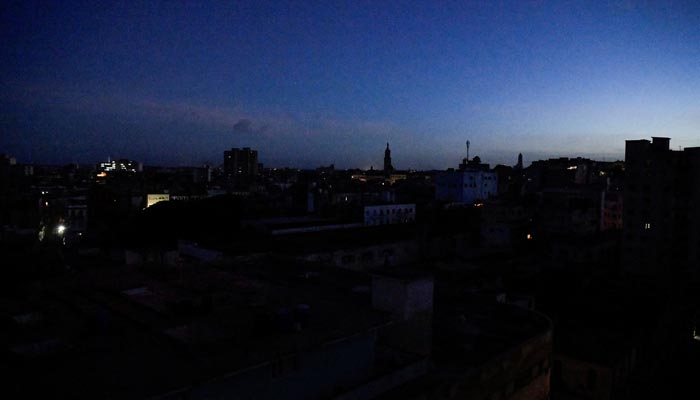Millions left in dark after Cuba's electric grid collapses
This was latest of several such failures as Cuba's grid falls into disarray amid fuel shortages, natural disaster and economic crisis
HAVANA: Millions of people were left without light in Cuba after the national electrical system collapsed early on Wednesday morning following the failure of the country's power plant.
According to Reuters, this was the latest of several such failures as the island's grid falls into disarray amid fuel shortages, natural disaster and economic crisis.
The country's energy and mines ministry said the Antonio Guiteras power plant in Matanzas, the island's top electricity producer, had shut down at around 2am, prompting the grid collapse.
Cuba's oil-fired power plants, already obsolete and struggling to keep the lights on, reached a full crisis this year as oil imports from Venezuela, Russia and Mexico dwindled, contributing to multiple nationwide blackouts over two months.
The system failure on Wednesday morning had left the capital Havana almost completely in the dark, according to a Reuters witness. Lights before sunrise could be seen only in a handful of large hotels and government buildings across the city's skyline.
Reports of blackouts elsewhere in Cuba on social media suggested the entire island of around 10 million people was without power, though the government had yet to confirm the extent of the outage.
The energy and mines ministry said it was working to reconnect the electrical system.
Cuba's grid collapsed multiple times in October as fuel supplies dwindled and Hurricane Oscar struck the far-eastern end of the island, then again in November with the passage of Hurricane Rafael.
-
Ghislaine Maxwell will not answer Congress questions on Epstein
-
Kensington Palace announces Prince William's arrival in Saudi Arabia
-
Super Bowl 2026: Why didn't Epstein survivors ad air on TV?
-
Girl and grandfather attacked in knife assault outside Los Angeles home
-
Super Bowl halftime show 2026: What did Trump say about Bad Bunny?
-
Former NYPD detective says Nancy Guthrie's disappearance 'could be hoax'
-
Japan Elections: Stock surges record high as PM Sanae Takaichi secures historic victory
-
$44B sent by mistake: South Korea demands tougher crypto regulations












